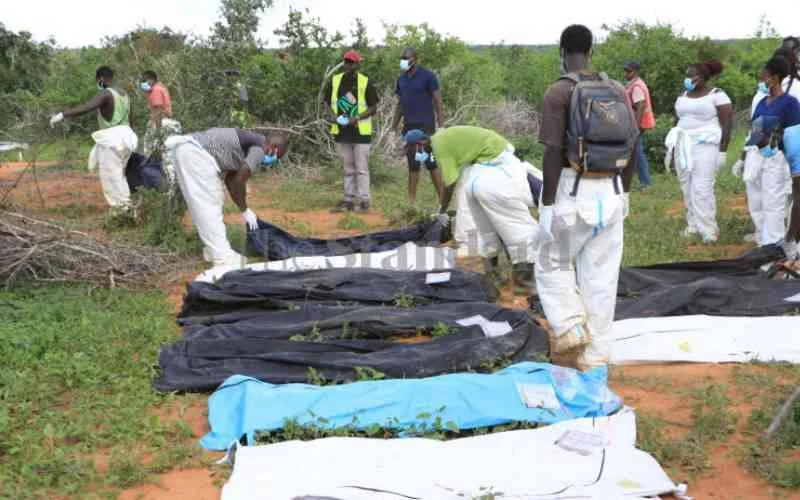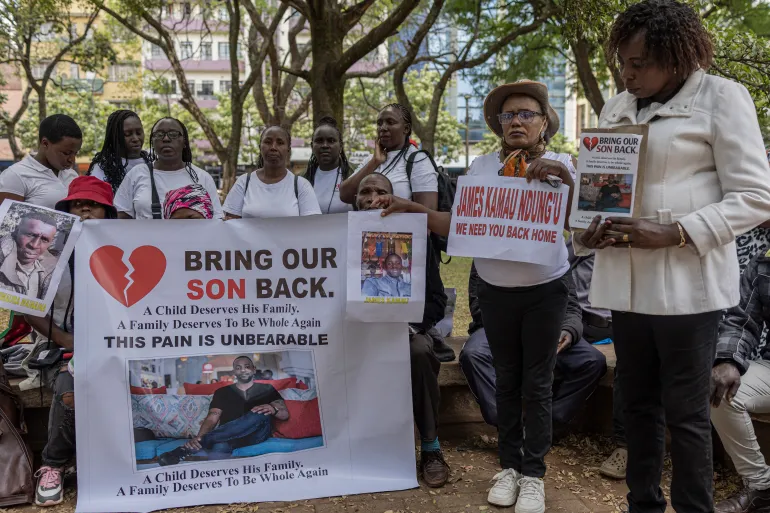Seventeen months after one of the deadliest cult-related massacres, the people in Malindi, a coastal town in Kenya, are still deeply affected despite prior warnings about the church’s leader.
Authorities have recovered the remains of over 430 victims since police raided Good News International Church, located in a forest approximately 70 kilometers (43 miles) inland from Malindi.
The death toll has continued to rise, particularly in this coastal region where extremist evangelical leader Paul Mackenzie persuaded his followers to starve themselves to meet Jesus.
Shukran Karisa Mangi, who was part of the team digging up the bodies of cult members buried in shallow graves, would often arrive at work intoxicated to numb his emotions.
However, he was horrified one morning when he discovered the body of a close friend with a severely twisted neck. This discovery deeply troubled him, especially as he had already unearthed the bodies of children.
Paul Mackenzie, now in custody, has pleaded not guilty to charges related to the murder of 191 children, multiple counts of manslaughter, and other offenses.
If found guilty, he faces life imprisonment. Despite these grave accusations, some locals say that Mackenzie’s demeanor in custody reflects the widespread influence that certain evangelical leaders hold, even when their teachings defy government authority, break the law, or harm their followers.
Kenya, like much of East Africa, is largely Christian, with a significant number of evangelical followers. Many pastors, modeled after successful U.S. televangelists, run their ministries without oversight from trustees or congregants. This lack of accountability enables some leaders, like Mackenzie, to appear omnipotent to their followers.
Mackenzie, who had previously been a street vendor and cab driver, opened his own church in 2003 after training under a preacher in Malindi.
Known for performing miracles and exorcisms, Mackenzie attracted followers from all over Kenya, including professionals such as teachers and policemen, eventually gaining national attention.
Initial complaints against Mackenzie arose due to his opposition to formal schooling and vaccinations. He was briefly detained in 2019 for opposing the government’s national identification initiative, which he claimed was satanic.
In 2019, Mackenzie closed his church in Malindi and relocated his followers to Shakahola, a remote area where he leased 800 acres of forestland.
Church members were encouraged to buy plots and build homes in villages with biblical names. However, Mackenzie’s demands became increasingly extreme, as survivors have recounted.
Former church member Salama Masha shared how she realized Mackenzie was dangerous after witnessing him instruct followers, including children, to fast to death.
Mackenzie lived in a grass-thatched house with a solar panel, known as “ikulu” or statehouse. While his followers starved, police later discovered that Mackenzie had bread, milk, and other supplies in his home. He also had bodyguards and informers, while maintaining his status as the self-proclaimed prophet, or “paapa,” to his followers.
Autopsies of over 100 bodies revealed that victims died from starvation, strangulation, suffocation, or injuries caused by blunt objects. Mangi, the gravedigger, believes there are still more mass graves in Shakahola. The Kenya Red Cross reports that at least 600 people are still missing.
Priscillar Riziki, who left Mackenzie’s church in 2017, lost her daughter and three grandchildren in Shakahola. She emotionally recalled Mackenzie’s growing disregard for his followers. One of her grandchildren was identified through DNA and was given a proper burial, while her daughter and two other grandchildren are presumed dead.
The tragic events in Shakahola have left a lasting impact on many families, and the search for victims continues as more information unfolds.























